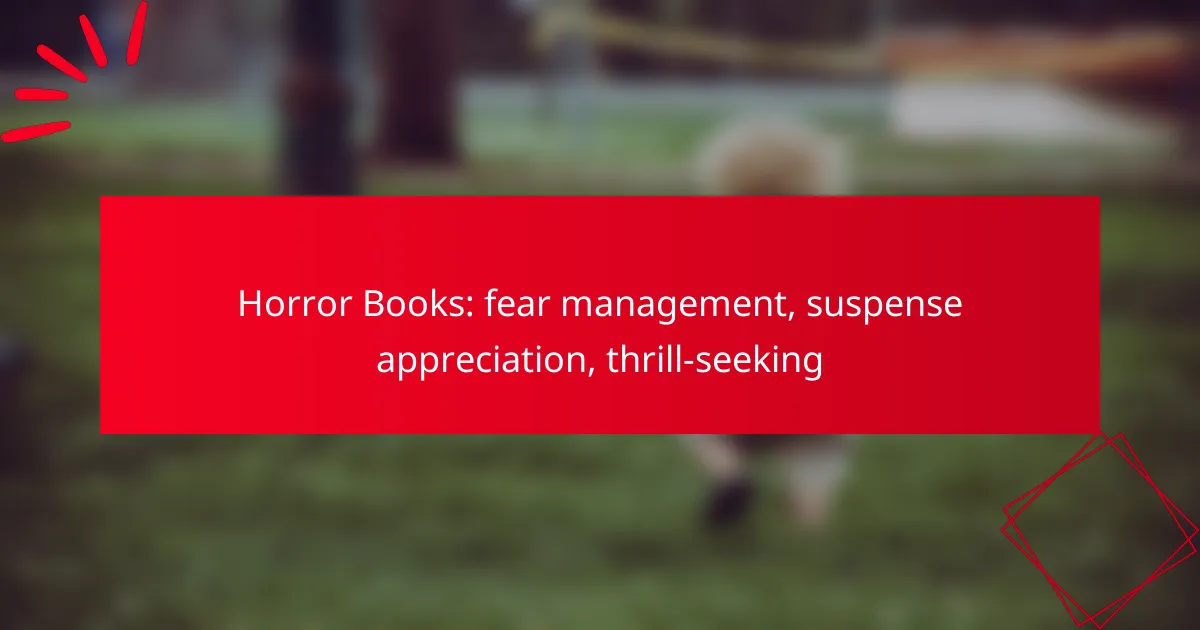
Historical Fiction: context-rich narratives, cultural education, time travel
Historical fiction offers readers a unique opportunity to immerse themselves in richly woven narratives that highlight significant events and cultural contexts. By blending authentic historical details with compelling characters, these stories not only entertain but also educate, allowing readers to experience diverse societies and their complexities. Through this genre, the past comes alive, fostering a deeper understanding of both history and humanity.

What are the best historical fiction books for Canadian readers?
Canadian readers can enjoy a variety of historical fiction books that offer rich narratives and cultural insights. Notable titles include works that explore significant events and themes relevant to both Canadian history and broader human experiences.
The Nightingale by Kristin Hannah
The Nightingale tells the story of two sisters in France during World War II, highlighting their struggles and resilience. This novel emphasizes the role of women in wartime and the sacrifices they make for their loved ones.
Readers appreciate the emotional depth and character development, which provide a vivid portrayal of life under occupation. The book’s exploration of themes such as love, survival, and the impact of war resonates with many, making it a compelling choice for those interested in historical narratives.
All the Light We Cannot See by Anthony Doerr
All the Light We Cannot See intertwines the lives of a blind French girl and a German soldier during World War II. The novel beautifully captures the innocence of childhood amidst the horrors of war, showcasing how human connections can endure even in the darkest times.
This book is praised for its lyrical prose and intricate storytelling. It provides readers with a profound understanding of the war’s impact on individuals, making it a significant read for those interested in the complexities of human experiences during historical events.
Fifth Business by Robertson Davies
Fifth Business is a unique exploration of the life of Dunstan Ramsay, who reflects on his past and the events that shaped him. Set against the backdrop of early 20th-century Canada, the novel delves into themes of guilt, spirituality, and the influence of myth in everyday life.
Davies’ work is notable for its rich character development and philosophical insights. The narrative encourages readers to consider the roles of fate and personal responsibility, making it a thought-provoking choice for those interested in Canadian historical fiction.

How does historical fiction enhance cultural education?
Historical fiction enhances cultural education by immersing readers in different time periods and societies, allowing them to experience diverse cultural contexts. Through rich narratives, these stories provide insights into historical events, social norms, and the lives of people from various backgrounds.
Promotes understanding of diverse cultures
Historical fiction serves as a gateway to understanding various cultures by presenting their traditions, beliefs, and struggles. Readers can explore the nuances of different societies, from ancient civilizations to modern communities, through the lens of relatable characters and compelling plots.
For example, novels set in the Roman Empire may highlight the complexities of social hierarchy, while those focused on Indigenous cultures can reveal the impact of colonization. This exposure fosters a broader appreciation for cultural diversity and encourages readers to reflect on their own cultural identities.
Encourages empathy through character experiences
By following characters in historical fiction, readers are invited to empathize with their experiences and challenges. This emotional connection helps to humanize historical events, making them more relatable and impactful. When readers witness characters facing adversity, they gain a deeper understanding of the human condition across different eras.
For instance, a story about a family during the Great Depression can evoke feelings of compassion and resilience, prompting readers to consider the socio-economic factors that shaped that time. Such narratives encourage readers to think critically about history and its relevance to contemporary issues, fostering a sense of empathy that transcends time and culture.

What are the key elements of effective historical fiction?
Effective historical fiction combines rich, authentic context with compelling characters and a captivating narrative style. These elements work together to transport readers to another time, making history feel alive and relevant.
Authentic historical context
Authentic historical context is crucial for grounding the narrative in a specific time and place. This involves thorough research into the era’s social, political, and cultural dynamics, ensuring that details like clothing, language, and customs reflect the period accurately.
Writers should consider using primary sources, such as letters or diaries, to capture the voice of the time. Incorporating real historical events or figures can also enhance the story’s credibility and engage readers’ interest in the actual history behind the fiction.
Complex character development
Complex character development is essential for creating relatable and memorable protagonists and antagonists. Characters should have distinct motivations, flaws, and growth arcs that resonate with readers, allowing them to connect emotionally with the story.
Authors can enhance character depth by placing them in morally ambiguous situations that reflect the historical context. This complexity encourages readers to ponder the characters’ choices and the societal norms of the time, fostering a deeper understanding of the historical period.
Engaging narrative style
An engaging narrative style captivates readers and keeps them invested in the story. This can be achieved through vivid descriptions, dynamic dialogue, and a well-paced plot that balances action with introspection.
Writers should experiment with different perspectives, such as first-person or third-person narratives, to find the best fit for their story. Additionally, incorporating sensory details can immerse readers in the historical setting, making the experience more vivid and memorable.

How can I choose the right historical fiction for my interests?
To choose the right historical fiction, start by identifying your interests in specific historical periods or events. This focus will help you find narratives that resonate with your preferences and enhance your reading experience.
Identify preferred historical periods
Consider which historical periods intrigue you the most. Whether it’s the ancient civilizations, the Middle Ages, or the 20th century, each era offers unique cultural contexts and events that shape the narrative. For instance, if you enjoy stories set during World War II, look for books that explore the complexities of that time.
Make a list of your favorite historical periods and explore novels set in those times. This approach can lead you to discover authors who specialize in those eras, enriching your reading journey.
Consider author background and expertise
Researching an author’s background can provide insight into the authenticity and depth of their historical fiction. Authors with academic expertise or personal connections to a specific time period often deliver more nuanced and accurate portrayals. For example, a writer with a history degree may offer a different perspective than a casual enthusiast.
Look for author interviews, biographies, or reviews that discuss their research methods and motivations. This information can help you gauge whether their work aligns with your expectations for historical accuracy and storytelling.

What are the benefits of reading historical fiction in Canada?
Reading historical fiction in Canada offers a unique opportunity to engage with the nation’s rich past while enhancing cultural understanding. These narratives not only entertain but also educate readers about significant events, figures, and societal changes that have shaped Canadian identity.
Insights into Canadian history
Historical fiction provides valuable insights into pivotal moments in Canadian history, such as the Confederation, the fur trade, and Indigenous peoples’ experiences. Through compelling storytelling, readers can explore the complexities of these events and their lasting impacts on contemporary society.
For example, novels set during the World Wars illustrate the sacrifices made by Canadians and the societal shifts that followed. This genre encourages readers to reflect on how history influences current Canadian values and policies.
Connection to local cultural narratives
Reading historical fiction fosters a deeper connection to local cultural narratives by highlighting regional stories and traditions. Canadian authors often weave local folklore, dialects, and customs into their works, allowing readers to appreciate the diversity of the country’s cultural landscape.
Books that focus on specific provinces or territories can reveal unique historical perspectives, such as the impact of the Gold Rush in British Columbia or the Acadian culture in New Brunswick. This connection enriches readers’ understanding of their own heritage and the broader Canadian experience.

How does historical fiction compare to other genres?
Historical fiction stands apart from other genres by weaving factual historical events and settings into imaginative narratives. This genre not only entertains but also educates readers about different cultures and time periods, offering a unique blend of storytelling and historical context.
Differences from contemporary fiction
Historical fiction differs from contemporary fiction primarily in its setting and themes. While contemporary fiction often reflects modern societal issues and current events, historical fiction immerses readers in past eras, requiring extensive research to accurately portray the time period. For example, a historical novel set in the 19th century may explore social norms and challenges of that era, contrasting sharply with a contemporary story focused on today’s technology and culture.
Additionally, historical fiction often emphasizes character development through the lens of historical events, which can lead to deeper explorations of how those events shape personal identities. This contrasts with contemporary fiction, where character motivations may be more influenced by current societal norms.
Similarities with biographical narratives
Historical fiction shares similarities with biographical narratives in that both genres aim to depict real-life events and figures, often blending fact with fiction. Biographical narratives focus on the lives of individuals, while historical fiction may incorporate these figures into broader fictional contexts, allowing for creative interpretations of their experiences.
Both genres require a commitment to accuracy in representing historical details, whether through the portrayal of significant events or the depiction of cultural practices. Readers of both genres can gain insights into historical contexts, enhancing their understanding of the past and its influence on the present.


